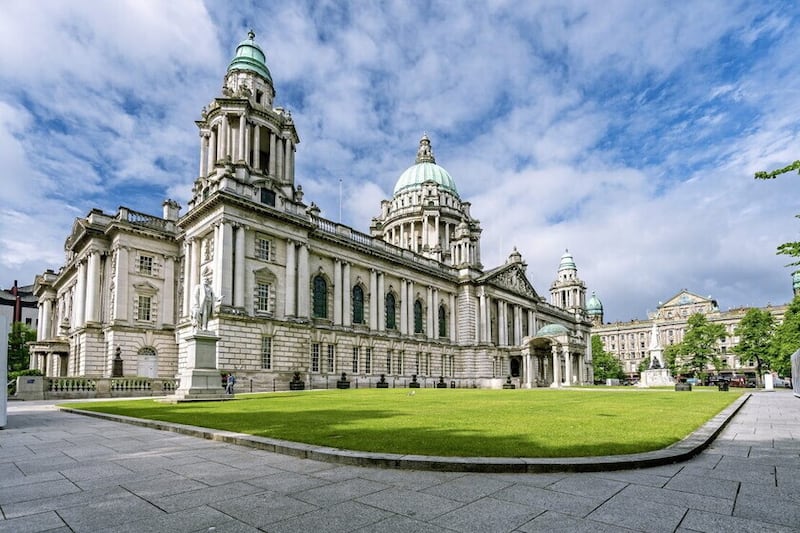Even before all the votes were counted it became clear that the Ulster Unionists and the SDLP were going to have yet another disastrous election.
The post-Good Friday Agreement downward spiral in fortunes continues and while there were instances where candidates from both bucked the trend, it's a gloomy outcome for the parties that together once had the support of more than half of the electorate – compared with the anticipated circa 20 per cent combined vote share from Thursday's election.
The Ulster Unionists' problems in many ways reflect the wider malaise within unionism.
The party – or at least its leader and his allies – recognise that there's diminishing returns in the traditional, identity-based unionism that once dominated the north's political landscape.
The post-Agreement generation isn't that interested in parading, flag-waving and social conservatism, and those that are gravitate to the DUP and TUV.
But the reactionaries in the UUP's ranks have served to slow and in some instances undermine the transformation to a more liberal agenda, which has allowed Alliance to capture the votes from this growing demographic.
The SDLP's problem is arguably harder to pinpoint, as beyond history, there's little to differentiate it from Sinn Féin, a party that's often accused of stealing its smaller rival's clothes.
Sinn Féin is just better at selling itself to the electorate. Its message is much simpler, while it benefits from a more loyal and energetic membership.
It's widely acknowledged that the SDLP boasts some of the north's most talented politicians yet beyond Westminster elections, where notably its South Belfast victory was secured with the assistance of a pact, the party can't turn capability into seats on the scale required.
Analysis: DUP disaster averted but all is not well within unionism
Analysis: Sinn Féin's textbook election highlights the north's generational shift
David McCann analysis: It's celebration time for Sinn Féin
In the aftermath of a poor election questions about leadership are inevitably raised.
Colum Eastwood is the youngest of the main party leaders but he's also the longest serving, having succeeded Alasdair McDonnell in November 2015. His time in charge of the SDLP has been one of mixed fortunes but mostly setbacks.
There are capable potential successors – Claire Hanna and Matthew O'Toole among them – but it's unlikely their approach would differ significantly from the Foyle MP's, as they already have significant input into party strategy.
Critics of Mr Eastwood's will point to the failed alliance with Fianna Fáil as evidence of his poor record but similar to Doug Beattie being frustrated internally, that project was derailed by dissent within the ranks rather than being an outright strategic mistake.
A new leader may bring fresh impetus but equally it could begin the sort of destabilising cycle that has beset the UUP for the past decade or more, where almost every poor poll result prompts a change in leader.
The UUP's situation is similar to the SDLP's in many regards.
Deputy leader Robbie Butler is Doug Beattie's most likely successor but it's thought that would merely result in a change of figurehead and not direction.

There are many in the party's ranks uncomfortable with the leader's embracing of a so-called woke agenda, however, they are generally in the ageing wing of the party, their animosity for the DUP based on historical rivalry more than policy.
Mr Beattie is in many ways an unorthodox leader, especially for a party that once represented the Protestant establishment, but for every critic of his sometimes amateurish yet sincere style of leadership, there's someone who believes it represents the best antidote to Sir Jeffrey Donaldson's staid, sober presentation.
Speaking on Saturday, both leaders appeared determined to remain in post.
"I have no interest whatsoever in titles or positions, if I thought the right course of action was to step down I would do it in a heartbeat," Mr Eastwood told the BBC.
"The reality is though I don't think there is a better option and we have to continue on and continue for the future."
Mr Beattie said that when he became leader in 2022 he stressed that any electoral recovery would "take time".
"I have been party leader for two years only, we have stuck with the same message for the last two elections and yes we haven't had successes but we are in the first election cycle of my leadership, it is going to take more than one," he told the BBC.
"We need to stick with it, we need to be inclusive, we need to be reaching out to as many people as we possibly can."
There may be a heave against the leaders of both parties in the coming weeks but potentially a leadership change for the SDLP and UUP will only deepen the problems rather than alleviate them.








